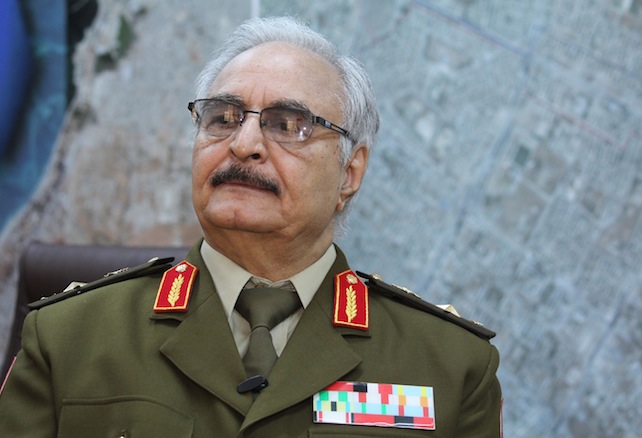What is hidden in the case of the Italian fishermen kidnapped in Libya

The case of the 18 Italian fishermen kidnapped in Libya. The analysis of the analyst Michela Mercuri
"In exchange for the Sicilian seafarers, Italy will hand over the Libyan footballers in prison". These were the words spoken a few days ago by the vice president of the Government of National Accord (GNA) Ahmed Maitig, who said he was directly committed to finding a solution as quickly as possible.
Words that on the one hand have rekindled hope in the families of the 18 fishermen kidnapped in Libya on 1 September this year, but which put the Italian government in a difficult position. The Libyan prisoners in question, in fact, are 4 people arrested in 2015 in Catania, tried in the Court of Assizes and in the Supreme Court, sentenced to 30 years as migrant smugglers and murderers, having caused the death of the 49 migrants kept in the hold they were transporting. towards Italy. At home, however, the prisoners are considered, by friends, family and Libyan militiamen, only as alleged "young footballers".
These, at least at the moment, are the facts and from here some considerations arise spontaneously.
The first is of an "ethical order". Given that the priority is to save the fishermen, is it right to give in to an exchange of prisoners (condemned as smugglers) to get back our compatriots arbitrarily kidnapped in the country just because they were fishing in waters considered territorial by Libya, but not by the international community? One might wonder why another mediation channel has not been found in recent months. Perhaps after days and days of negotiations it was expected to avoid yielding to the first request made by Haftar , whose forces have seized the fishermen. It is plausible to hypothesize that Italy has also taken other paths asking for mediation to Haftar's allies (Russia and the Emirates), but probably the two actors did not consider it useful to expose themselves too much for the Italian cause with an ally considered "secondary". After all, what would they get in return? However, if the exchange of prisoners is really the last resort to get our fellow citizens back home, it should not be forgotten that giving in to Haftar's blackmail means being aware that there could be others from "rogue" states, tribal leaders and "field marshals". 'Africa, thus transforming every Italian, who for work or other reasons enters some “unstable” states, into precious prey.
The second consideration, on the other hand, concerns Libya's internal balances . We know well that the path of the Forum for political dialogue in Libya that took place in Tunis ran aground on the choice of the candidate for the new Presidential Council. An important position that many aspire to. In particular, the Minister of the Interior Fathi Bashaga, close to the Turks who would have granted him the consent for a visit to France on 18 November. A rather fruitful visit that assured the Minister of the Interior a memorandum of understanding for the creation of biometric and other security systems.
Perhaps it is not even a coincidence that, after that visit, the Libyan National Oil Corporation (NOC) declared its intention to expand the investments of Total of Libya. The Libyan state oil company explained that it had discussed with Total the efforts to "increase the capacity and production rates of crude oil to the highest levels". In short, it seems that Bashaga is trying all out to become a "man of weight" for the future of the country. Perhaps this is also why Maitig, also a papable candidate for the position of leader of the new presidential council, has decided to deliver a "master stroke" and announce with great fanfare the imminent liberation of Italian fishermen. On the other hand, Maitig had already negotiated with Haftar the reopening of the oil wells, a breath of fresh air for the Libyans and now, thanks to the reopening of dialogue with the Cyrenaica general, he could also mediate on this thorny issue, assuming a diplomatic weight not indifferent and useful for upcoming appointments.
That said, the story of the fishermen prisoners in Benghazi represents, after almost three months of detention, a critical issue for Italy and Europe, cut off from the "protagonists that matter" (Russia, Turkey, United Arab Emirates, only for name a few), which could affect the future Libyan peace process. Their release, following an exchange with the four football traffickers detained in Italy, would represent a useful solution to finally bring our fellow countrymen back home to their families but at the same time would constitute a further setback for the already compromised credibility of the Italy in Libya and, more generally, in the Mediterranean.
Article published on michelamercuri.it
This is a machine translation from Italian language of a post published on Start Magazine at the URL https://www.startmag.it/mondo/che-cosa-cela-il-caso-dei-pescatori-italiani-rapiti-in-libia/ on Thu, 05 Nov 2020 17:28:55 +0000.
